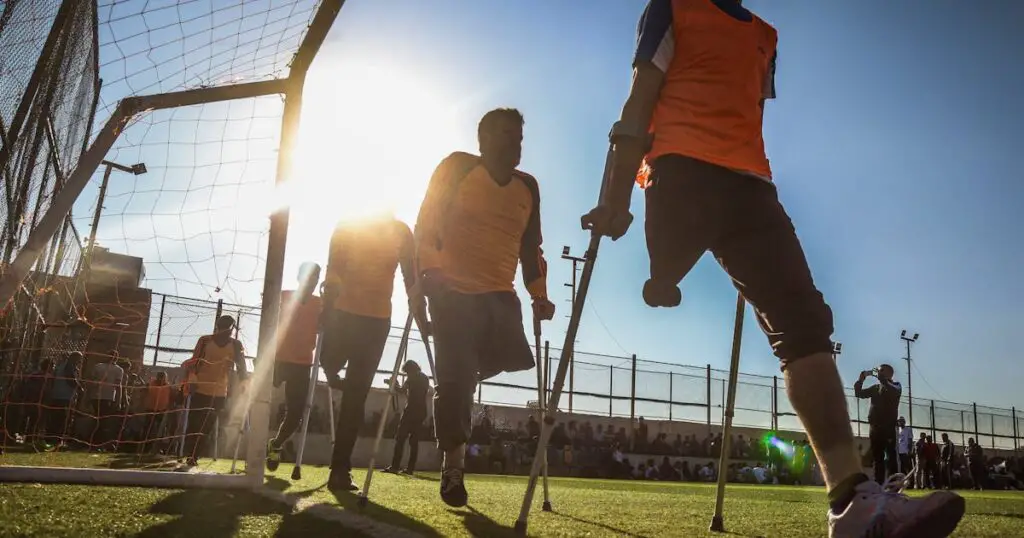key takeaway: The overarching goal of rehabilitation is to provide individuals with the means to regain or improve their physical, sensory, intellectual, and mental capabilities that have been compromised due to injury, illness, or disability. This process is essential not only for enhancing the quality of life for those affected but also for integrating them back into society as active participants.
Through tailored programs, rehabilitation empowers people to achieve independence, enabling them to perform their daily activities to the best of their abilities. Whether it's recovering from a physical injury, managing a chronic condition, or adapting to life-changing circumstances, rehabilitation stands as a beacon of hope and progression. It emphasizes the individual's potential to recover and adapt, underscoring the importance of personalized care in fostering resilience and autonomy.

Rehabilitation, in its broadest sense, refers to the process of restoring or improving a person’s physical, mental, and social functioning after an illness, injury, or disability. The goal of rehabilitation is to help individuals live their lives as independently and fully as possible, regardless of any limitations they may have.
Rehabilitation can take many forms, ranging from physical therapy for those with mobility issues to cognitive therapy for individuals with brain injuries. It can also involve vocational rehabilitation, which aims to help people return to work after an injury or illness.
For those who have experienced a significant life event, such as a stroke or serious accident, rehabilitation can be crucial in helping them regain function and improve their quality of life. In this article, we will explore the benefits of rehabilitation, address common misconceptions, and highlight the global need for improved access to rehabilitation services.
The Benefits of Rehabilitation
Rehabilitation has numerous and far-reaching benefits. For individuals with physical disabilities or injuries, it can help improve their mobility, strength, and overall physical function. It can also reduce pain and discomfort, leading to a better quality of life.
For those with mental health conditions, rehabilitation can provide support and guidance in managing symptoms and improving overall well-being. This may include counseling, therapy, and medication management.
Rehabilitation also plays a crucial role in helping individuals reintegrate into their communities after a significant life event. By restoring functionality and independence, rehabilitation can help people return to work, engage in social activities, and improve overall satisfaction with life.
Misconceptions About Rehabilitation
Despite its many benefits, rehabilitation still carries some misconceptions. One common misconception is that rehabilitation is only for athletes or individuals with severe disabilities. In reality, rehabilitation can benefit anyone who has experienced an illness, injury, or disability that affects their daily functioning.
Another misconception is that rehabilitation is only for physical needs. In fact, rehabilitation can address a wide range of issues, including mental health conditions and vocational needs.

Additionally, some people may believe that rehabilitation is a one-time process. However, in many cases, ongoing support and maintenance are necessary to maintain improvements made during rehabilitation.
Unmet Global Need for Rehabilitation
Despite the clear benefits of rehabilitation, access to these services is not universal. According to the World Health Organization (WHO), approximately 15% of the world’s population lives with a disability, and most of them do not have access to rehabilitation services.
In low—and middle-income countries, where healthcare resources are limited, even more people lack access to rehabilitation services. This unmet need can have significant consequences for individuals, their families, and society as a whole.
Rehabilitation in Emergencies
Access to rehabilitation services becomes even more critical in times of crisis or emergencies, such as natural disasters or armed conflicts. In these situations, many people may experience injuries or disabilities that require rehabilitation but lack the resources and support to receive it.

Additionally, for those who are already living with a disability, emergencies can disrupt their access to the support and services they depend on. This highlights the crucial role of rehabilitation in emergency response and recovery efforts.
FAQs
In this section, we will be delving into some of the most common inquiries and curiosities that surround our topic.
Is rehabilitation only for physical injuries?
No, rehabilitation can address a wide range of issues, including mental health conditions and vocational needs.
Who can benefit from rehabilitation?
A: Anyone who has experienced an illness, injury, or disability that affects their daily functioning can benefit from rehabilitation.
Is rehabilitation a one-time process?
In many cases, ongoing support and maintenance are necessary to maintain improvements made during rehabilitation.
Conclusion: What is the Goal of Rehabilitation?
The goal of rehabilitation is to help individuals live their lives as independently and fully as possible, regardless of any limitations they may have. It encompasses a range of services and supports that can improve physical, mental, and social functioning for those who have experienced an illness, injury or disability.
Despite its many benefits, access to rehabilitation services is not universal. This highlights the need for increased awareness and resources to address the unmet global need for rehabilitation. In times of emergencies, rehabilitation plays a crucial role in aiding recovery and helping individuals with disabilities regain their independence.
So, it is essential to understand the importance of rehabilitation and support efforts to improve access to these services globally. With proper rehabilitation, individuals can overcome challenges and live fulfilling lives. No one should be denied the opportunity to reach their full potential due to lack of access to rehabilitation services.



Leave a Comment
You must be logged in to post a comment.